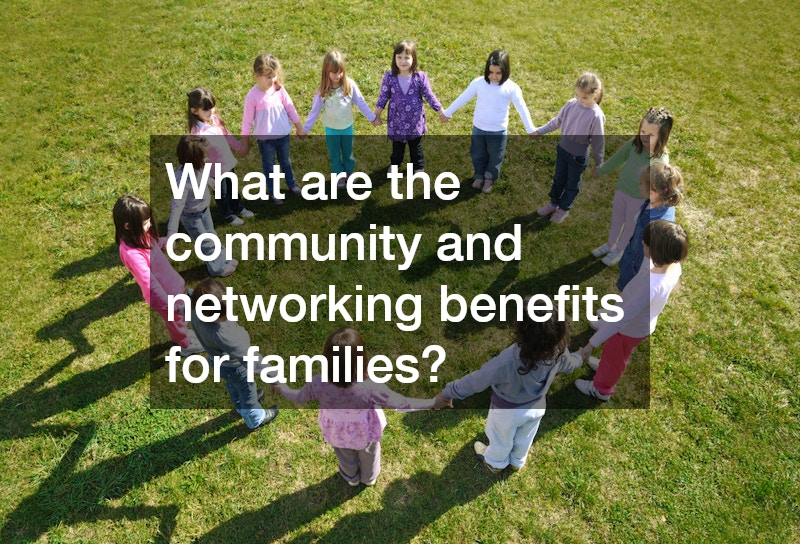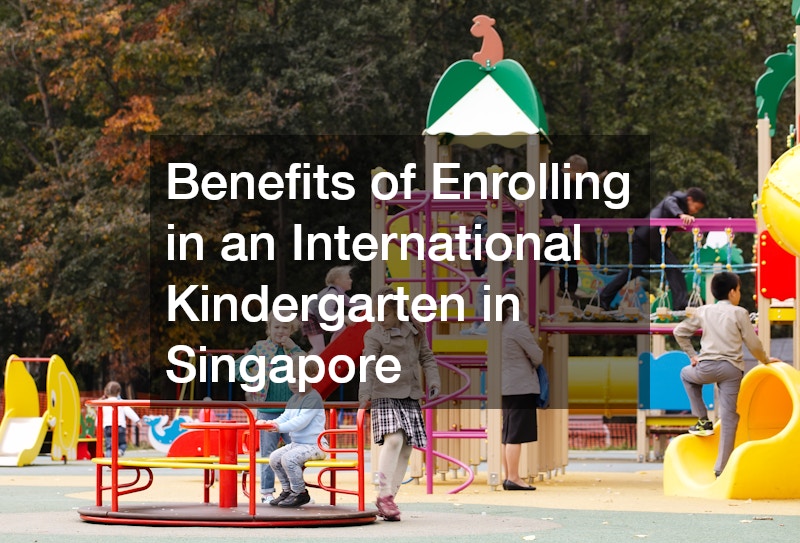Understanding the implications and advantages of international education in early childhood is crucial for many parents. This article explores the multifaceted benefits of enrolling children in international kindergartens, with a focus on Singapore, a thriving hub for international education. Read further to learn the benefits of enrolling your child in an international kindergarten in Singapore.
What are the educational benefits of an international curriculum?
Exposure to Diverse Learning Approaches
International kindergartens in Singapore offer a variety of curricula such as the International Baccalaureate, Montessori, and Reggio Emilia. These curricula emphasize holistic development, contrasting with traditional rote learning in local standards.
Children are exposed to different teaching methodologies that prioritize experiential learning. This variety fosters adaptability and a long-term love for learning.
Parents find value in international curricula because they often lead to well-rounded educational experiences. Such exposure enriches a child’s understanding of different perspectives and methodologies.
Development of Critical Thinking Skills
International kindergartens encourage children to ask questions and explore problems, fostering a natural inquisitiveness. Critical thinking is cultivated through open-ended tasks and collaborative projects.
Children learn to analyze and evaluate information, building a strong foundation for problem-solving skills. This approach contrasts with the memorization techniques prevalent in more traditional systems.
Parents often notice that their children become more independent thinkers. These skills are crucial for future academic success and life challenges.
How does cultural exposure enhance a child’s development?
Multicultural Environment
Singapore’s international kindergartens are melting pots of culture, creating diverse social interactions. Children learn to appreciate different cultures, which enhances their emotional intelligence.
Exposure to a multicultural environment leads to improved social skills and empathy. These skills enable children to navigate and respect different cultural contexts effectively.
Creating connections with peers from various backgrounds also fosters cultural competence. This competence is essential in a rapidly globalizing world where inclusivity is vital.
Language Acquisition and Development
Language programs in international kindergartens emphasize multilingualism from an early age. Bilingual or even trilingual abilities boost cognitive development significantly.
Children exposed to multiple languages develop better communication skills and linguistic versatility. This environment sharpens their ability to think creatively and flexibly.
A strong grasp of languages enhances future academic and professional opportunities. Parents often report that such skills provide a competitive edge in tomorrow’s global landscape.
What role do experienced international teachers play?
Qualified and Diverse Teaching Staff
International kindergartens in Singapore attract teachers with qualifications from world-renowned institutions. A diverse staff offers a rich tapestry of educational philosophies and strategies.
These teachers bring unique perspectives and experiences into the classroom. The fusion of teaching styles benefits children by broadening their learning experiences.
Having a qualified and well-rounded teaching staff is key to providing quality international education. Parents often value this diversity as it mirrors a global environment.
Adapting Teaching Methods to Individual Needs
Experienced educators in international kindergartens are adept at understanding individual learning styles. They tailor their teaching approaches to suit the unique needs of each child.
This adaptability ensures that each child’s potential is maximized, fostering an inclusive learning environment. Personalized learning enables better academic growth and confidence.
Parental feedback often highlights the benefits of an adaptable teaching approach. Children thrive in settings where their unique talents and challenges are recognized and supported.
How does an international kindergarten prepare children for future educational stages?
Transition to Higher Educational Levels
International kindergartens are designed to ease transitions to primary and secondary education. The curricula align with global educational standards, ensuring a seamless advancement to higher educational levels.
These foundations help children adapt to diverse educational systems worldwide. Parents consider this crucial for families who may relocate internationally.
Having a strong kindergarten experience sets the tone for future learning attitudes and commitments. This approach is recognized globally as paving the way for academic success.
Global Perspective and Competence
From a young age, children develop a global perspective, preparing them for a multicultural world. Learning about global issues hones their problem-solving skills and cultural understanding.
This competence supports their educational pursuits and adaptability to varied social settings. Parents observe that children with a global mindset adapt better to diverse environments.
International kindergarten students often grow into culturally competent individuals. This broader viewpoint can open doors in both personal growth and professional careers.
What are the community and networking benefits for families?
Building a Multinational Network
Families enrolled in international kindergartens find opportunities to connect globally. This networking extends across various cultures, building lifelong relationships.
These connections provide support systems that are crucial in a dynamic world. Parents value the diverse community that international schools foster.
Joining such a community provides a cohesive understanding of different global perspectives. This awareness is critical as families navigate a more interconnected world.
Parent Involvement and Community Engagement
International kindergartens encourage active parental involvement through various engagement activities. Community involvement includes open days, cultural celebrations, and educational seminars.
Such engagement strengthens the bond between parents, teachers, and students. Parents feel more connected and invested in their child’s education.
Active involvement creates a supportive and cooperative learning atmosphere. The community spirit enriches both student learning and parental participation.
.


